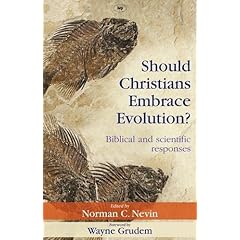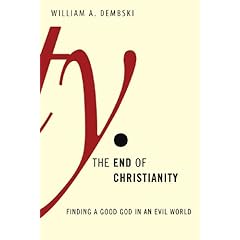About 150 Christian leaders were the original signatories of the recent manifesto asserting the sanctity of life, traditional marriage, and liberty of conscience — the Manhattan Declaration. At the time of this writing, over a 100,000 have signed it (including me). I encourage readers of UD to read the document and sign it if it reflects your views on God and culture.
Of the 150 original signers, I know about 25 personally. Interestingly, the original signers seem overwhelmingly pro-ID. That raises the question why no notable theistic evolutionists are signers (e.g., Francis Collins). To be sure, signers such as Tim Keller and Dinesh D’Souza have indicated an openness to evolutionary theory. But I’m not finding any among the signers who are adamantly committed to theistic evolution, seeing it as the only way to be both scientifically and theologically responsible.
Perhaps I’m missing something here. If so, I’m happy to be disabused. But is it possible that ID is friendlier to classic Christian teaching on the sanctity of life, traditional marriage, and liberty of conscience than theistic evolution? It not, I’d like to see the names of theistic evolutionists who are also signers of the Manhattan Declaration.
——
Manhattan Declaration: A Call of Christian Conscience
November 20, 2009
The following is the text of the Manhattan Declaration signed by 149 pro-life and Catholic and evangelical and Orthodox Christian leaders. LifeNews.com supports the pro-life aims of the resolution.
http://manhattandeclaration.org
Preamble
Christians are heirs of a 2,000-year tradition of proclaiming God’s word, seeking justice in our societies, resisting tyranny, and reaching out with compassion to the poor, oppressed and suffering.
While fully acknowledging the imperfections and shortcomings of Christian institutions and communities in all ages, we claim the heritage of those Christians who defended innocent life by rescuing discarded babies from trash heaps in Roman cities and publicly denouncing the Empire’s sanctioning of infanticide. We remember with reverence those believers who sacrificed their lives by remaining in Roman cities to tend the sick and dying during the plagues, and who died bravely in the coliseums rather than deny their Lord.
After the barbarian tribes overran Europe, Christian monasteries preserved not only the Bible but also the literature and art of Western culture. It was Christians who combated the evil of slavery: Papal edicts in the sixteenth and seventeenth centuries decried the practice of slavery and first excommunicated anyone involved in the slave trade; evangelical Christians in England, led by John Wesley and William Wilberforce, put an end to the slave trade in that country. Christians under Wilberforce’s leadership also formed hundreds of societies for helping the poor, the imprisoned, and child laborers chained to machines. Read More ›


 Yesterday I met with the literary publicist hired by Broadman & Holman to promote The End of Christianity when it is released November 1st (for the Amazon.com listing, go
Yesterday I met with the literary publicist hired by Broadman & Holman to promote The End of Christianity when it is released November 1st (for the Amazon.com listing, go